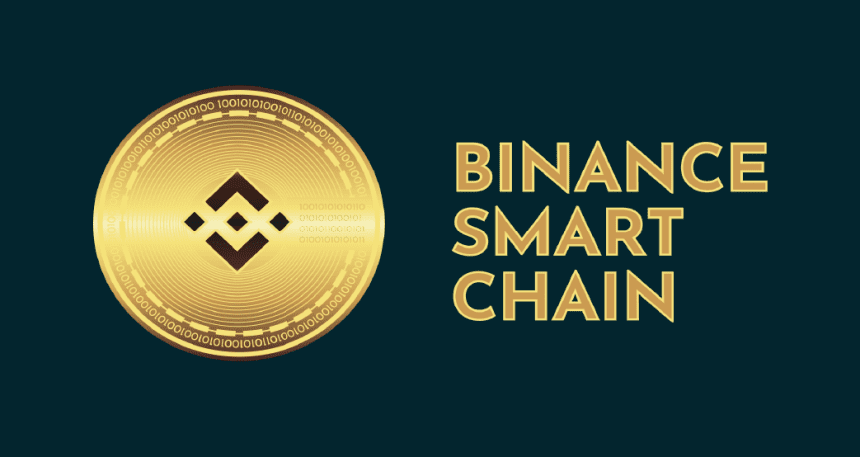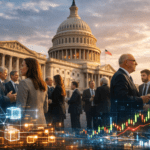CZ Pardon: Binance Lawyer Rejects Pay-to-Play Claims
Crypto’s Reputation: “Lawfare” and Legitimate Enforcement. One big subcurrent in Guillén’s comments an unanticipated one is that CZ came to represent a metaphor for a larger political wrestling series over crypto. On the one hand, members of the crypto world say that after the FTX exchange, U.S. regulators launched a “de-facto” “war on crypto” overreacting to record leniency by taking aim hard at the big players like Binance. (In contrast, lawmakers like Warren insist that executives who accepted the risk and allowed their platforms to be used by criminals be elevated as examples and that pardoning them sends precisely the wrong signal to the industry.)
Guillén’s line is unambiguous: CZ, from her point of view, should never have gotten prosecuted in the first place and definitely not portrayed as a mastermind of criminal laundering. Whether you buy that or not, the gap separating those narratives explains why the CZ story is so polarizing. On one hand, he’s an over-targeted builder. To the other, he is evidence that crypto billionaires can twist the wheel. Why the Pay-to-Play Story Persist (Even When It’s Wrong).
Let’s face it, if every single one of Guillén’s arguments was rock-solid, the pay-to-play narrative is going to continue to circulate. Why? Because from afar, the ingredients are a perfect source of conspiracy fuel:
A polarizing president with a long history of controversial pardons.
A crypto billionaire who pleaded guilty to a serious compliance offense.
A Trump-family crypto venture, starting up a stablecoin on Binance’s chain.
Multi-billion-dollar transactions involving that stablecoin and a foreign sovereign wealth linked firm.
A political climate where most people are already convinced that pardons are routinely “for sale”.
You need not be a cynic to look at that list and raise an eyebrow. The issue, to which Guillén keeps turning and returning, is evidence. Public reporting so far has raised many questions and sketched out financial and political overlaps though it hasn’t proved that CZ or Binance really were the ones who paid for the pardon. For the time being, the story resides in that gray area between circumstantial suspicion and clear proof. So what Do Crypto Traders and Builders Need to Know for All This? If you’re in crypto, this isn’t just political gossip it has real-world consequences.
This is what we can make of it, Regulatory clarity still rules. Even with a reprieve, Binance’s path illustrates that turning a blind eye to AML and sanctions expectations can be ridiculously costly. The takeaway, for new exchanges, DeFi front ends, and stablecoin issuers, is simple, Compliance is no longer optional “nice-to-have” overhead. It’s survival gear.
Optics matter as much as law. Deals that involve politically connected projects such as World Liberty Financial will always be scrutinized more aggressively. If your protocol or token is making contact with this world, you must prepare for transparency and documentation from day one. Don’t get yourself into a mess of political rescue. Pardons are rare, volatile, unpredictable. To build your business model on the hope that a benevolent administration might bail you out is to be gambling with regulators and your users’ belief in it. Narrative risk is true market risk. Even unproven claims about pay-to-play can cause investors, businesses and, eventually, policymakers to act. Reputation management in crypto isn’t PR puffery; it’s part of the risk register.
The Future of Crypto Regulation: What This Means. The battle in this narrative regarding CZ’s pardon is really a proxy battle across how crypto will be regulated in the future. Two conflicting ideas are beginning to crystallize:
Crypto as systemic risk that should be heavily policed. From this perspective, players like Binance are too powerful, and tough enforcement including criminal charges is required to safeguard consumers and national security. From here, pardons like CZ’s seem at best like dangerous exceptions that undermine deterrence. Senate Banking Committee.
Crypto as an emerging industry punished for growing too quickly. In this framing, regulators have relied on blunt instruments, criminal tools to enforce rules never intended by our government for borderless, open-source financial rails. From here, CZ appears less a villain and more a high-profile casualty of “lawfare” waged against crypto. Guillén interview strongly aligns with second vision. The extent to which policymakers and the public are convinced will play a role in everything from stablecoin laws to exchange licensing in the years ahead. Conclusion: Speculation, and Due Process. So, did CZ “buy” his pardon? As of now, we simply do not have public evidence to say that he did. We do have:
A documented criminal case and guilty plea around AML failures
A controversial presidential pardon in a highly politicized environment
Complex overlaps between Binance’s ecosystem, Trump’s crypto venture, and big geopolitical money
Strong accusations from politicians and columnists
An equally strong denial from CZ’s lawyer, who depicts those charges as a jumble of misquotes, misunderstandings, and anonymous sources
For our interested stakeholders of crypto’s future, the sober lesson here is this: we can fight for accountability without going so far as to go down conspiracy simply for conspiracy’s sake. We should demand that there be clear pathways to transparent pardon processes and clear conflict-of-interest rules and strong AML enforcement — also that the media, politicians even, on-chain sleuths, differentiate between suspicion and evidence. CZ’s tale isn’t just about individual freedom, as with the other, the man, this time around; it’s about whether the nascent crypto-fi space will be defined by rule and evidence, or by whichever narrative can shout the loudest. FAQs.
Was CZ actually paying for his presidential pardon? There is no public record of CZ or Binance paying for the pardon. The pay-to-play narrative is built upon circumstantial overlaps such as Binance’s close connection to World Liberty Financial and its USD1 stablecoin, and Trump’s history of controversial clemency grants and is not based on a recorded payment or contract. CZ’s lawyer, Teresa Goody Guillén, has denied outright that any such deal occurred. .
Where exactly did CZ plead guilty before he was pardoned? CZ pleaded guilty to failing to have a sufficient anti-money-laundering program in place at Binance in terms of the Bank Secrecy Act. He didn’t accept a fraud or launder money directly himself. He resigned as chief executive of Binance, paid a $50 million fine, served a four-month sentence and was granted the pardon.
How is World Liberty Financial involved in this controversy? World Liberty Financial is a Trump-linked crypto firm that launched the USD1 stablecoin. USD1 originated in Binance’s network and was involved in a $2 billion deal by Abu Dhabi–backed firm MGX tied to Binance, which raised concerns about conflicts of interest and potential influence on Trump’s decision to pardon CZ. But World Liberty and CZ’s legal team deny that the project contributed toward securing his pardon.
Does CZ’s pardon change Binance’s regulatory status in the U.S.? No. The pardon removes CZ’s individual federal conviction, but Binance as a company remains bound by terms of its settlements with the DOJ, CFTC, FinCEN, and OFAC, such as the presence of a Treasury-appointed compliance monitor and restrictions on serving U.S. customers. CZ’s clemency has not kept the exchange under close regulatory scrutiny.
What must crypto companies learn from CZ’s case? The key lessons are: Treat AML and sanctions rules like existential challenges, write a careful account of your relationships with politically exposed entities, expect optics to be scrutinized as rigidly as legal ones, and never resort to political favors as a risk-management tactic. Even with a presidential pardon, the reputational and regulatory costs for CZ and Binance would be vast and not easily reversed.






















